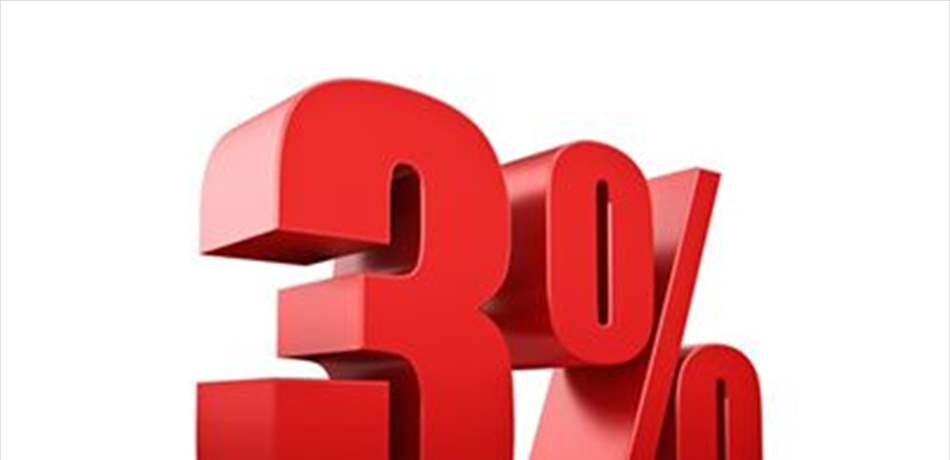
[ad_1]
Under the title of common database so as not to turn the right of 3% into a nightmare, Professor Jbadim Ajja wrote in "The Republic": The Parliament closed the last chapter of the budget and at the top of its budget a levy 3% on imported goods subject to VAT, without gasoline Industrial and agricultural sectors. This reform clause can become a nightmare for the citizen if it is not implemented well, thanks to a database shared between the customs, the Ministry of Finance and the Ministry of Economy.

Correction element
This tax is an excellent element of reform because it will limit imports because of high import prices, in accordance with the principle of supply and demand. We know that the problem of the Lebanese economy comes from the deficit of its trade balance, which has a negative impact on Lebanese enterprises and labor as well as on public finances, because it contributes to the reduction of its credit and its impact on the Lebanese pound should not be forgotten. Lebanon because of this import (20 billion USD per year!). This protectionist policy is supposed to help the local industry and drive it to invest, because the demand for domestic products will increase because of the price difference between the imported products.
However, as in all the measures we take, these costs have disadvantages, especially the high prices of goods and goods not equivalent to Lebanon and subject to value-added tax. This increase is offset by an economic, social and financial justification and indicates that the rise in the prices of these goods will bring about a kind of national solidarity and increase the income of public finances in a state of misery.
But the problem that will arise for this action, which is not justified economically, neither socially nor financially, is the rise in domestic prices and / or the rise in imported prices above the imposed tax.
Legislative Decree 73/83
Price control is provided by Lebanese laws and Legislative Decree 73/83 is perhaps the oldest and most effective. This decree contains a clear definition of monopoly and price manipulation, as well as the control mechanism and sanctions applicable to violators.
Article 3 of this decree stipulates that the prices of goods, property, goods and services of any kind are subject to the Lebanese currency. Article 7 stipulates that "the sale of goods, materials and products produced in the country or imported and specifying neither the maximum selling prices nor the percentage of the profits derived from their sale shall not exceed the maximum sale price. twice the cost price ".
Article 8 prohibits any producer, trader or seller from refusing to meet the demands of his customers or closing his shop in order to refrain from selling without legal justification. Article 14 established a monopoly on an implicit or public agreement restricting competition for goods or services, as well as for any work to collect materials and goods in order to conceal them.
Article 16 of this decree remains the strongest law: illegal speculation is incriminated by artificially raising or lowering prices, in addition to spreading false news among the public and offering products to scramble prices or attempt sellers.
Barriers to censorship
Historical experiences have shown that it is encouraging to take advantage of some traders and take advantage of the special circumstances in which the country will increase its prices and realize illicit profits. If the controllers of the Ministry of Economy, with the help of citizens, can suppress such practices, the main difficulty remains the determination of the cost price for the trader.
According to the conventional view, the cost price is the purchase price plus the indirect costs resulting from the rental of stores, wages and other costs that increase the price of the product. This involves verifying the documents that determine the price of the purchase, lease and electricity bill, which poses several problems, including many vendor vendors who refuse to issue official invoices for fear of the Ministry of Finance's tax services. Finance. This prevents observers from the Ministry of Economy to know whether these bills are true or not.
Of course, the control mechanism in view of the 3% increase in imported goods requires: 1) to ensure that the trader does not increase prices before the publication of the budget in the Official Journal; 2) And (4) the distinction between imported products. As a result, the offender is subject to the provisions of Legislative Decree 73/83 and the criminal and financial penalties provided for.
The problem of the wholesale trade
However, the main problem of censorship remains the inability of the Directorate of Consumer Protection to control wholesalers who import their products from abroad. The lack of a common database between Customs, the Ministry of Economy and the Ministry of Finance allows the merchant (non sheriff) to handle bills at three different locations.

Source:
The Republic
Source link